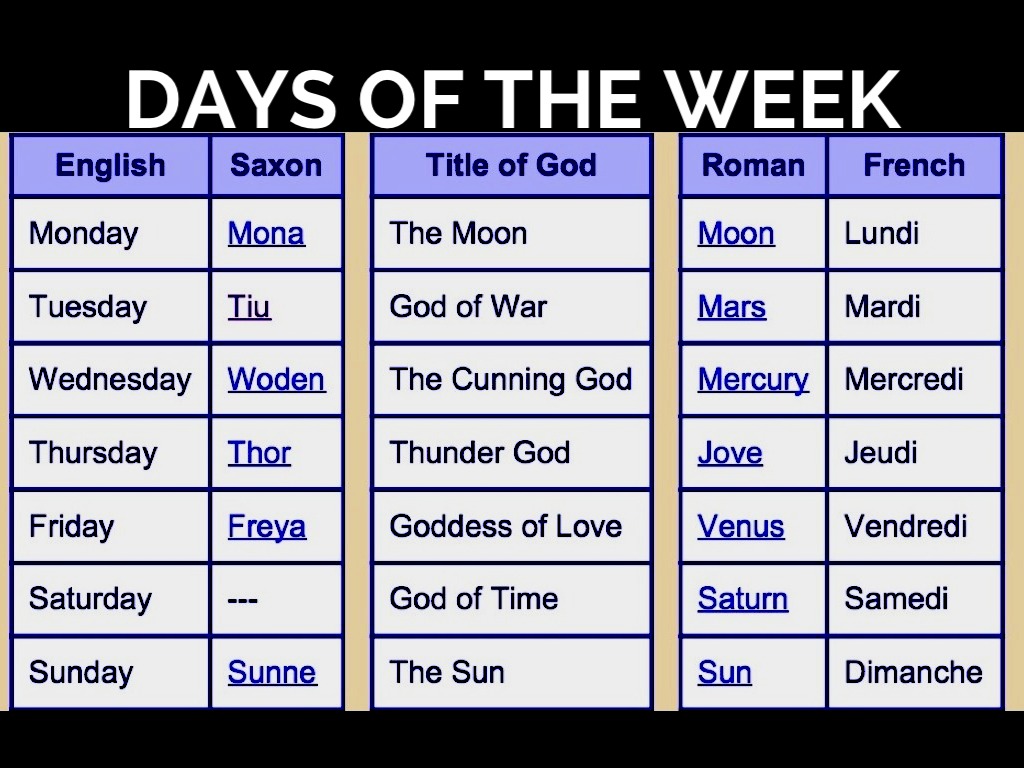
Introduction
The days of the week have different names in different cultures. In the Norse culture, the days of the week were named after the Norse gods. The Norse gods were worshipped by the people of Scandinavia, Iceland, and other parts of Northern Europe from the 8th to the 11th century.

Monday - Moon's Day (Mandag)
Monday is named after the Norse god Máni, who is the personification of the moon. Máni is said to ride across the sky on a chariot pulled by horses. He is also believed to have a sister, Sol, who is the personification of the sun.
Tuesday - Tiw's Day (Tirsdag)
Tuesday is named after the Norse god Tyr, who is associated with war and justice. Tyr is believed to be one of the oldest gods in the Norse pantheon. He is also known as the god of single combat, and he sacrificed his right hand to bind the wolf Fenrir.
Wednesday - Odin's Day (Onsdag)
Wednesday is named after the Norse god Odin, who is considered the chief of the Norse gods. Odin is associated with wisdom, war, and death. He is also known for his use of magic, and he has two ravens, Huginn and Muninn, who fly around the world and bring back information to him.

Thursday - Thor's Day (Torsdag)
Thursday is named after the Norse god Thor, who is associated with thunder, lightning, and storms. Thor is also known for his strength and his ability to fight giants. He is often depicted with his hammer, Mjolnir, which he uses to defend Asgard, the home of the gods.

Friday - Freya's Day (Fredag)
Friday is named after the Norse goddess Freya, who is associated with love, fertility, and war. Freya is often depicted wearing a necklace made of amber, and she rides a chariot pulled by two cats. She is also known for her magical abilities.
Saturday - Saturn's Day (Lørdag)
Saturday is named after the Roman god Saturn, who is associated with agriculture and wealth. The Norse people adopted the Roman calendar, which is why Saturday is not named after a Norse god.
Sunday - Sun's Day (Søndag)
Sunday is named after the Norse goddess Sol, who is the personification of the sun. Sol is believed to ride across the sky on a chariot pulled by horses, just like her brother Máni.

Conclusion
The Norse gods and goddesses have had a significant impact on Norse culture and mythology. Naming the days of the week after these deities is just one example of how deeply ingrained these beliefs were in the lives of the Norse people. Today, many people still use these names for the days of the week, even if they do not know the origins of the names.